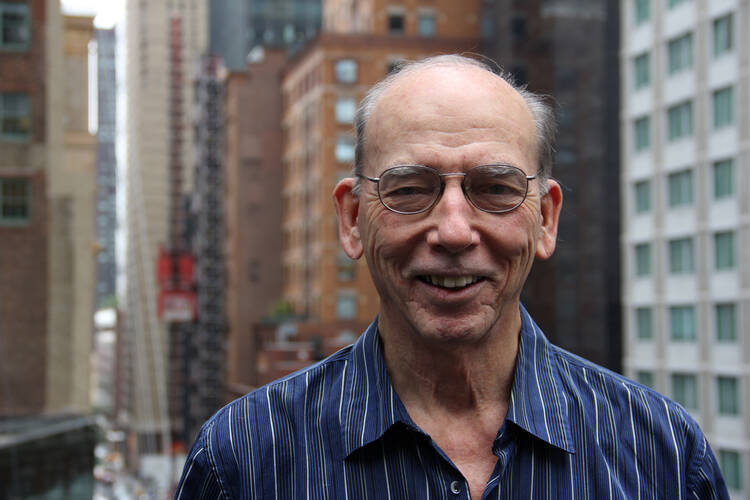The teacher’s main task, I think, is to introduce students to men and women of every generation from whom they can learn. If it works, the author will come alive, join the discussion and make students and teachers friends.
At least that’s what happened with William Zinsser, author of On Writing Well, who died May 12 at 92, and who kept teaching until the end, even after glaucoma had stolen his sight. As soon as his obituary hit the pages, I received emails from two former students from my days at Loyola University New Orleans, to tell me that Zinsser was dead. They had not read him since the 1990s, but they wanted to express their sorrow.
Born in Manhattan in 1922, “intoxicated” by the scent of printer’s ink, Zinsser edited the student newspaper at Deerfield Academy in Massachusetts, left Princeton University to fight in World War II, studied art in Florence after the war and then worked at The New York Herald Tribune—at that time the best-written New York City paper—until it closed in 1966. When he taught a workshop on nonfiction at Yale in 1970, when the so-called new journalism, which employed the characteristic style of fiction, was breaking out, 170 students signed up for his class that held 20.
My basic writing class at Loyola used three books: Strunk and White’s The Elements of Style, long considered the writer’s bible; William Smart’s edited Eight Modern Essayists, classic selections that included my favorites: Virginia Woolf’s “The Death of A Moth,” George Orwell’s “Why I Write,” E. B. White’s “Once More to the Lake,” James Baldwin’s “Notes of A Native Son” and Joan Didion’s “Goodbye to All That.” Since good writing is based on great writing, I also used Zinsser’s On Writing Well, which sold over 1.5 million copies over six editions, as a guide through the genres—writing about people, travel, sports, the arts and criticism, and the memoir—on how to do it, as we drank in how Orwell and Didion did it well.
I found myself a learner in my own course, drinking in Orwell’s rationale (ego, aesthetic enthusiasm, historical impulse and political purpose) as if it were John’s Gospel and matching Orwell’s critique of stale imagery and dying metaphors (toe the line, grist for the mill) with Zinsser’s criticism of clutter (“at this point in time” instead of “now,” “facilitate” rather than “ease,” “due to the fact that” over “because”).
Above all, he nails “impacted with the ground prematurely,” used to describe an Air Force missile crash, and he warms my determination to prevent the verbification of nouns. If I could recall Zinsser’s ghost for a special mission, it would be to head off the virus of “incredible” coming to mean very good, rather than something that cannot be believed.
Zinsser’s basic beliefs were the following. Writing is hard and lonely work. Rewriting is the essence of writing. (This essay draft will be 1,200 words, which I must chop down to 730.) The writer’s job is to sell who he or she is, with an emphasis on humanity and warmth. Say “I.” Write to please yourself. Read your work aloud and listen. Good prose writers must be part poet.
The chapter on travel writing goaded me to introduce a course on it and to travel alone to places like Peru, Gabon, Indonesia, Vietnam and Iraq right after the first Gulf War and write about it all, to prove that I could do it. Whether that enhanced my credibility with my students, they never told me.
The chapter on the arts makes the vital distinction between the review, which is more a news story, and criticism, which is a “serious intellectual act” that evaluates a performance in context. Consider Virgil Thompson’s fearless report on Toscanini, who “shamelessly whips up the tempo and sacrifices clarity and ignores the basic rhythm” if “he finds the audience’s attention beginning to wander.”
And of course the most challenging chapter is on the memoir, writing about oneself. It has its perils. “Ego is healthy, no writer can go far without it. Egotism, however, is a drag.” The memoir, he says, takes us back to some corner of our life framed by war or some other upheaval. It is a story of growing up. A handwritten notebook journal of my Fordham junior year in Paris in 1953-54 lies in my foot locker, unread for 60 years. Do I dare to turn it into a memoir? Zinsser concludes: “The best gift you have to offer when you write personal history is the gift of yourself.”








